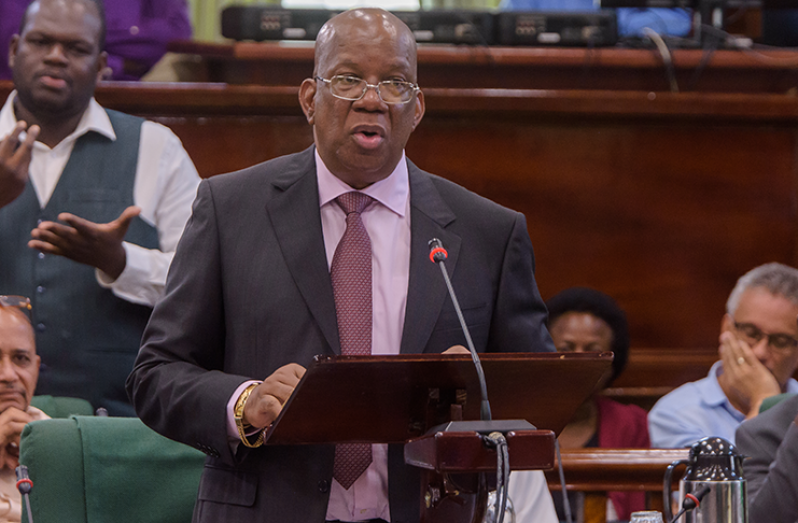–for hinterland communities in the new year
THE new year promises to see several remote communities connected to the e-governance network through the installation of information communication telecommunication (ICT) hubs.
Among those communities, said Finance Minister Winston Jordan, are Kaikan, Paruima and Jawalla in Region Seven (Cuyuni-Mazaruni) and Kato in Region Eight (Potaro-Siparuni).
He told the National Assembly on Monday during his presentation of the 2019 Budget that the connectivity will be made as part of a wider US$17M access project.
The total budget for the ICT sector in 2019 has been pegged at $4B, and will cover such other projects as the creation of smart classrooms, as well as the provision of heightened security in Georgetown by way of installing closed-circuit television (CCTV) cameras at strategic points.
What the government proposes doing, he said, is installing about 100 wireless-enabled cameras in and around Georgetown. “These cameras,” he said, “will feed into a command centre that will be established for the Guyana Police Force.”
And among villages which will benefit from the creation of Internet hubs in 2019 are Phillipai in Region Eight; Rewa, Surama and Toka in Region Nine (Upper Takutu-Upper Essequibo); and Kimbia and Wiruni in Region Ten (Upper Demerara-Berbice).
The cost for connecting these communities has been budgeted at $375M, and see some 11,390 residents benefiting from access to the Internet.
Minister Jordan also told the House that the government will continue to implement its targeted interventions, which are geared at “stimulating innovation, including coding and programming camps, robotics camps, Girls in ICT programme and Hackathons.”
He said that under the foregoing programmes, the youth population will continue to benefit from investments in the ICT sector, as many of them have already begun to demonstrate their affinity for technology and desire to innovate.
Already, he said, young innovators are not only producing 3D-printed prostheses that cost half the price of a comparable product, but also seeding and fertilising rice fields in Berbice with drones. “And they are developing technology-based applications for the private sector,” he said.
And from the little it has learnt, he said, the government is convinced that the planned investments in the country’s youth are impactful and must be supported.
Early into his presentation, Minister Jordan told his colleagues in the House that in the initial phases of the proposed digital transformation, the government will aim its budgetary allocations towards key sectors and services such as health, education and security.
“Already, several hundred public educational institutions have been provided with Internet connectivity, so that our young people and educators can benefit from improved learning experiences, facilities and outcomes,” he said, adding that in 2019, government will be piloting smart classrooms all across the country in order to deliver smart-education services such as distance learning.
Audio-visual facilities, he said, will aslo be provided for medical practitioners at over 30 health facilities, so they can consult, remotely, with specialists who can offer expert advice and services that are more readily available in the more established hospitals along the coast.
The Finance Minister said transformation of the ICT sector will be accelerated in 2019, with the development of the national broadband infrastructure. He said that in the medium to long-term, the government aims to connect the general public and government agencies and further expand e-government services.












